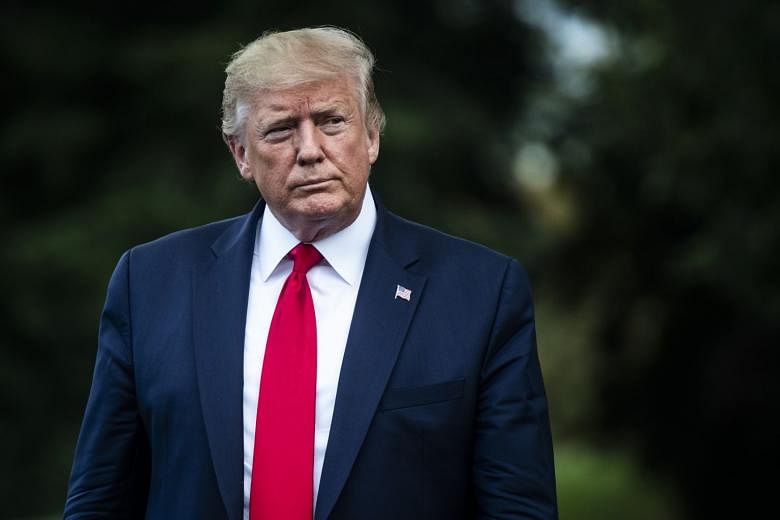WASHINGTON/PARIS (REUTERS) - US President Donald Trump threatened to tax French wines on Friday (July 26) in retaliation for France's recent proposal to levy a tax aimed at big US technology companies.
Mr Trump had told French President Emmanuel Macron last week that he was concerned about the proposed digital services tax.
"If anybody taxes them, it should be their home Country, the USA. We will announce a substantial reciprocal action on Macron's foolishness shortly," Mr Trump tweeted on Friday. "I've always said American wine is better than French wine!"
Later in the Oval Office, Mr Trump told reporters the tax decision was wrong and he threatened the key French export.
"They shouldn't have done this," Mr Trump said. "I told them, I said, 'Don't do it because if you do it, I'm going to tax your wine.'"
He said a few minutes later that the US response would be announced soon, saying that it "might be on wine, it might be on something else."
Mr Trump and Macron spoke by telephone on Friday and discussed the tax and next month's summit of the Group of 7 rich nations in France, the White House said.
Mr Macron's office said the French leader "underlined that the G7 summit would be an important opportunity to move towards a universal taxation of digital activities, which is in our common interest, and which we need to keep working on in order to obtain a broad international agreement."
French Economy minister Bruno Le Maire said in a statement after Trump's tweet that "the universal taxation of digital activities is a challenge that concerns all of us. We want to reach a deal on this within the framework of the G-7 and the OECD. In the meantime, France will move ahead with national decisions."
The United States is by far the largest single export market for French wine and spirits, which is France's second-biggest export after aerospace. The United States in 2018 accounted for nearly a quarter of all French wine exports, or 3.2 billion euros' (US$3.6 billion) worth.
White House spokesman Judd Deere said the United States "is extremely disappointed by France's decision to adopt a digital services tax at the expense of US companies and workers.
France's unilateral measure appears to target innovative US technology firms that provide services in distinct sectors of the economy."
He added "the administration is looking closely at all other policy tools."
The US Trade Representative's Office (USTR) last month said it would hold a hearing on Aug 19 in its probe of France's new planned tax on big technology companies after Trump ordered an investigation into the tax, which could lead to the United States imposing new tariffs or other trade restrictions.
USTR said the levy was an "unreasonable tax policy." The plan departs from tax norms because of "extraterritoriality; taxing revenue not income; and a purpose of penalizing particular technology companies for their commercial success," it said.
USTR added that statements by French officials suggest the tax will "amount to de facto discrimination against U.S.
companies ... while exempting smaller companies, particularly those that operate only in France." The tax is due to apply retroactively from the start of 2019. USTR said that calls into question the fairness of the tax.
Two weeks ago, the French Senate approved the 3 per cent levy that will apply to revenue from digital services earned in France by firms with more than €25 million (S$38 million) in French revenue and €750 million worldwide.
Other EU countries including Austria, Britain, Spain and Italy have also announced plans for their own digital taxes.
They say a levy is needed because big, multinational Internet companies such as Facebook and Amazon are currently able to book profits in low-tax countries like Ireland, no matter where the revenue originates. Political pressure to respond has been growing as local retailers on main streets and online have been disadvantaged.

